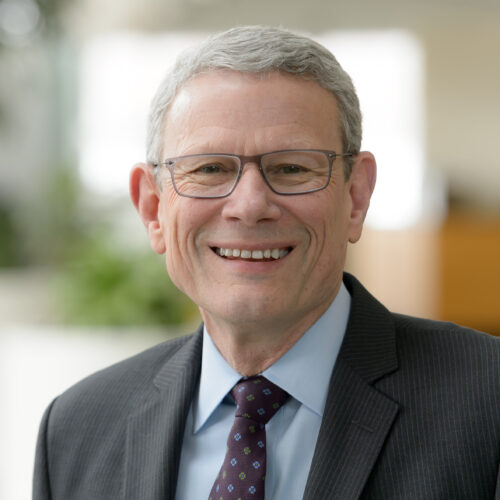HHS Distinguished Alumni Award recipient leads groundbreaking science as national laboratory director
Written By: Rebecca Hoffa, rhoffa@purdue.edu

Paul KearnsPhoto provided
From trips to Purdue University with the National FFA Organization to visits with his older sister who also attended the University, Paul Kearns’ experiences with Purdue in high school made his college decision an easy one. With years of success in some of the nation’s top research laboratories, Kearns credits Purdue University in helping shape his career path.
Currently leading Argonne National Laboratory as laboratory director, Kearns is being recognized with the Purdue College of Health and Human Sciences 2022 Distinguished Alumni Award for his significant accomplishments and leadership in bionucleonics, as he advances Argonne National Laboratory’s research and teamwork to new heights.
“It’s been humbling,” Kearns said. “It’s not something that I ever imagined would come as a recognition or an award — I know a lot of great people have gone to Purdue, and certainly a lot of great people have gone through the program in Health and Human Sciences. I think it has also helped me to be a bit more reflective of my career and the stops along the way.”
The program’s focus on environmental challenges and their impacts on human health is what drew Kearns to bionucleonics, even as an undergraduate student in Purdue’s College of Agriculture. He participated in a work study program in what was then the Bionucleonics Department, where he became acquainted with the department’s faculty and graduate students.
“It was a pretty natural fit,” Kearns said. “It felt really uplifting, encouraging and meaningful in terms of the research and studies that we were doing. That made it easy for me to say ‘This is where I want to be.’”
Because Kearns appreciates time alone to think and study, when he was a Purdue student, he could often be found in a quiet corner in the Purdue Memorial Union or one of the many libraries on campus. Outside of his coursework and bionucleonics research, Kearns regularly participated in intermural sports, including volleyball, squash and handball. He also was a frequent attendee of Boilermaker football and basketball games.
It was also at Purdue in the bionucleonics graduate program that Kearns was first introduced to Argonne National Laboratory. Paul Ziemer, who is now a professor emeritus in Purdue’s School of Health Sciences, asked Kearns to organize a tour for health physics undergraduate students to explore the laboratory.
“I owe it all to Dr. Ziemer and his interest in students becoming familiar with Argonne National Laboratory, so that was pretty neat,” Kearns said.
Upon graduating from the School of Health Sciences with a PhD in bionucelonics in 1980, Kearns started his role at Argonne National Laboratory as a health protection specialist for the U.S. Department of Energy. After that role, he worked across the Department of Energy national laboratory system in a variety of roles that focused on the development of clean energy technologies, basic science and leadership.
Kearns has also held positions at the National Renewable Energy Laboratory, the Pacific Northwest National Laboratory, and the Idaho National Engineering and Environmental Laboratory prior to returning to Argonne National Laboratory as chief operations officer and then becoming laboratory director in 2017.
Under Kearns’ leadership, Argonne National Laboratory has thrived, tackling some of the most complex challenges facing the world today, from working on the science behind the mRNA vaccine during the COVID-19 pandemic to developing technologies to meet clean energy needs, such as the electrification of transportation.
“We’ve been able to contribute to the world’s understanding of such challenges and address those very effectively,” Kearns said. “It’s been exciting in that way.”
The laboratory recently celebrated its 75th anniversary, where Kearns is leading efforts to upgrade research capabilities while also putting more focus on the culture of Argonne National Laboratory through five core values: safety, impact, respect, teamwork and integrity.
For Kearns, some of the most important factors that have influenced his career are the value he has placed on mentorship and learning from others and his willingness to pursue new opportunities as they arise.
“Any time a new opportunity has come along, I’ve really been eager to explore it,” Kearns said. “It has allowed me to learn a lot and build a fantastic network over time of professional colleagues. It has also allowed me to advance to provide leadership for a national laboratory that’s very diverse in its research and all it can accomplish.”